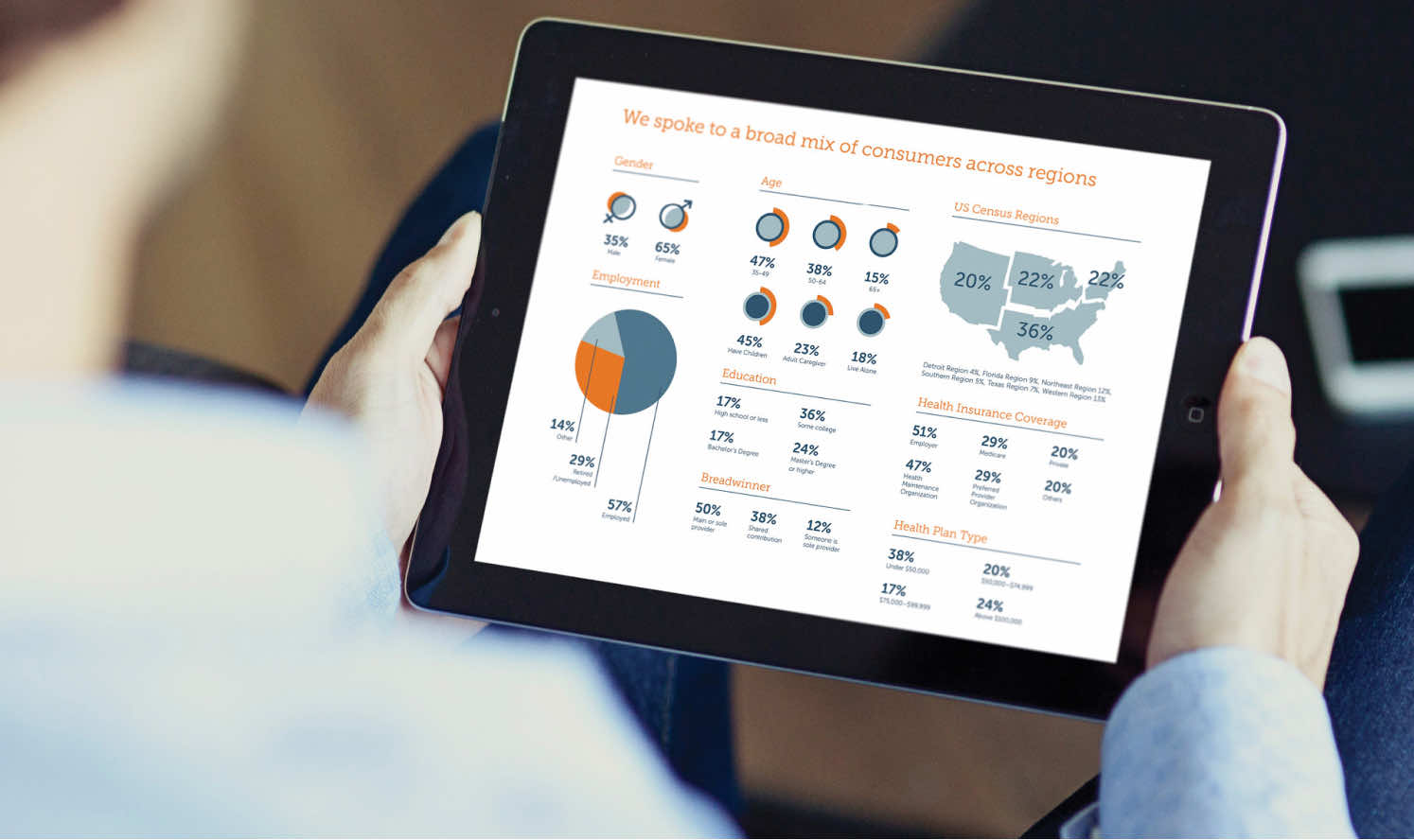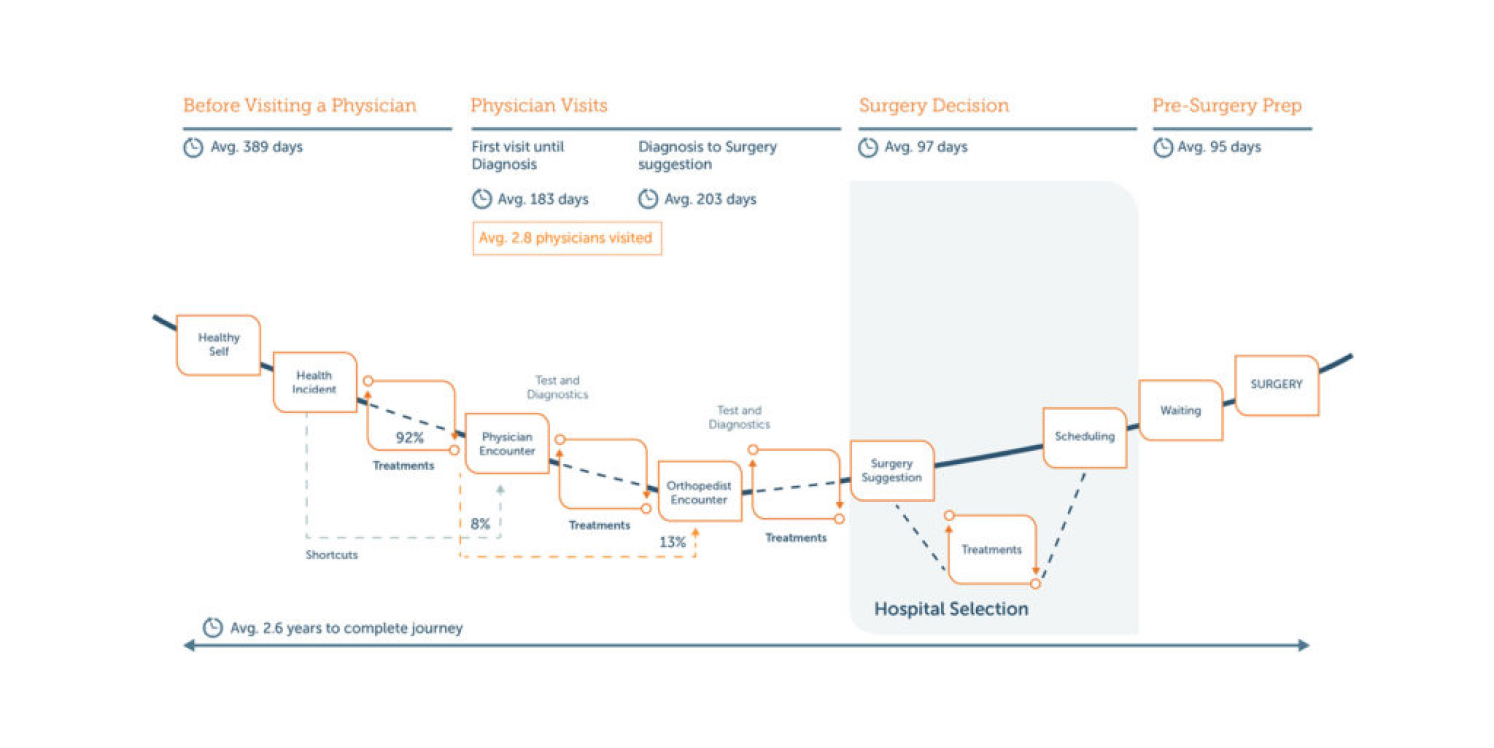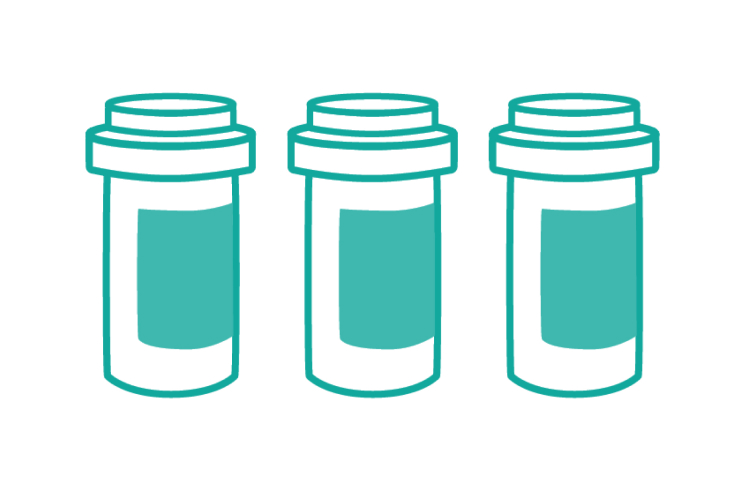
Tenet Healthcare
The diversified healthcare services company gets closer to its customers through a deep exploration into the orthopedic journey.
Pinpointing patient motivation
The consumer healthcare decision processes is no longer linear. In our age of instant access to online tools and social sharing, consumers often evaluate their care options and engage in care behaviors without ever coming face to face with a health care provider.
With so many new touchpoints influencing the orthopedic care journey, Tenet Healthcare needed to cut through the noise to better understand what makes their customers tick. Orthopedics is one of the fastest-growing and profitable service lines in the business, mostly driven by elective surgeries. With a clear picture of the customer journey and what motivates—or impedes—choices at each step, we can create more meaningful interactions to drive choice and, ultimately, fuel business growth. Our research was designed to uncover:
- When it comes to orthopedic surgery, how do we motivate people to choose us?
- At what steps across the orthopedic journey are people most open to influence, and why?
- What are the triggers and messages that motivate patients to take relevant action, as well as barriers to action?

The right message in the right place
The Tenet and Monigle teams rolled up our collective sleeves and designed a research strategy to map the journey and identify the steps that most strongly impact selection of providers and hospitals for elective knee, hip and spine surgeries—no easy task, given the nonlinear, lengthy (up to three years!) nature of the journey. This shed light on how Tenet could message to consumers in the right channels with the right content at the right time.

Diving headfirst into the field
A variety of inputs and methodologies informed our work, from qualitative phone interviews, video diaries and online bulletin boards to a large-scale, national quantitative survey. We used advanced statistical regression and correlation analysis to mine for insights and better understand the cause-and-effect relationships across the orthopedic journey.
Most important, we identified the barriers that Tenet must help patients overcome in order to move forward in their journey. These are perceived susceptibility (the amount of risk the person faces), perceived severity (the person’s opinion of how serious the consequences of not acting are) and perceived benefits (the person’s perception of how much benefit they’d gain by pursuing professional help).
We uncovered that many people simply don’t understand the severity of their condition or see the benefits of seeking help. Some people concentrate only on potential negative aspects of surgery, an example of the focusing effect bias. This is what happens when people place too much importance on one aspect of an event and lose the ability to accurately predict the benefit of a future outcome. In fact, we found that few patients look up information related to hospitals while making decisions along the journey—it’s often too stressful or draining. That means patient contact with the hospital starts only after surgery is scheduled; under Tenet’s current system, this makes it too late for the organization to become a true partner in patients’ decision-making.
With research results in hand, we transformed data into actionable tools for the Tenet marketing team to implement directly into campaigns, messaging and content.
Transforming data to action
With research insights in hand, we transformed data into actionable tools for the Tenet marketing team to implement directly into campaigns, messaging and content. In addition, our recommendations challenged the Tenet team to change the way we think about hospitals and the role they play in an orthopedic patient’s care journey. Ultimately, it’s about so much more than just fixing knees, hips and spines. It’s about building programs and processes to be there for patients along every step of their decision journey, addressing the physical, emotional, and lifestyle aspects that act as barriers to action.



92% try to self-manage treatment
Nearly all research participants tried to treat their condition at home, via solutions like over-the-counter medication and topical pain relievers.
2.6 years
The orthopedic patient decision journey is a long one; the average patient takes 389 days just before visiting a physician for the first time.
2.8 physicians visited
Patients typically visit three physicians before deciding to have surgery.
83% experience barriers
Most knee, hip and spine patients experience multiple barriers to their surgery decision; they need clearer guidance on how effective their condition management solutions are versus having surgery.
"The quality of output and project management during the project was top-class."


